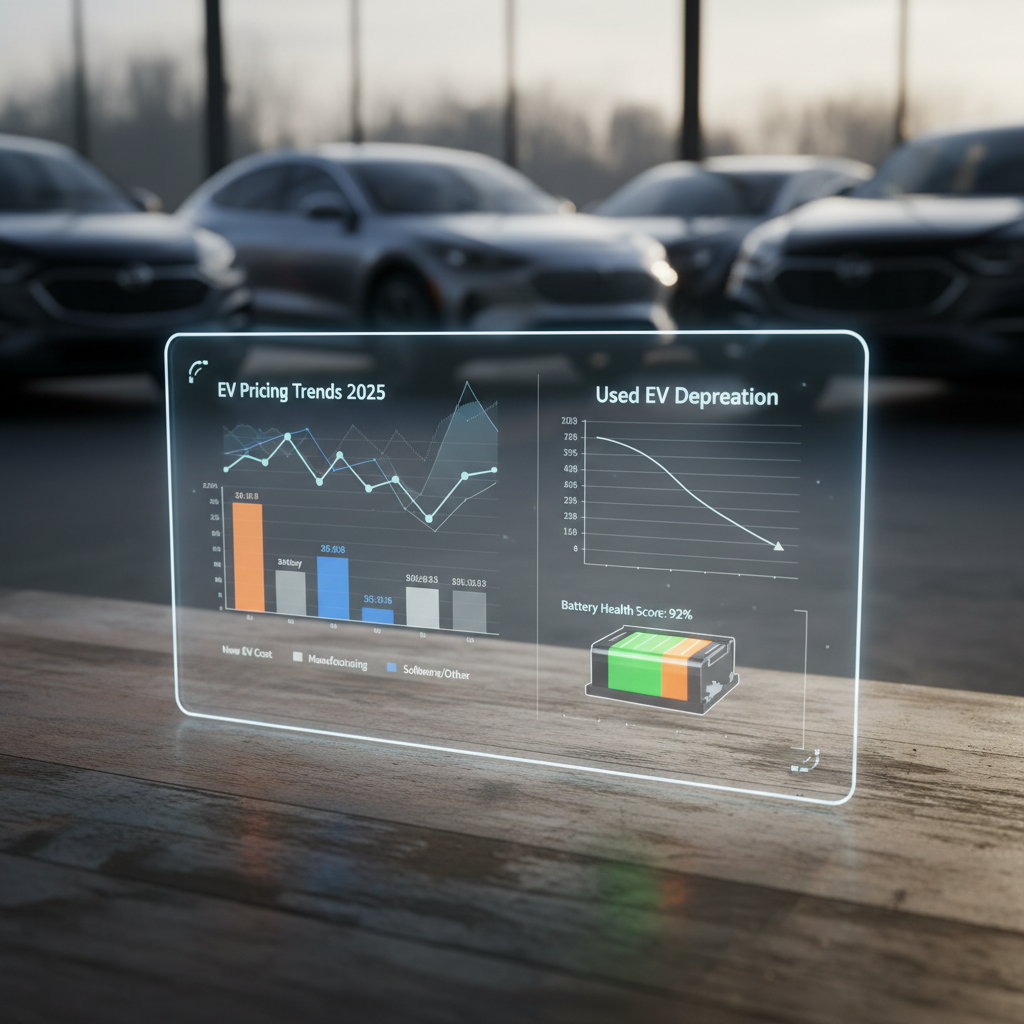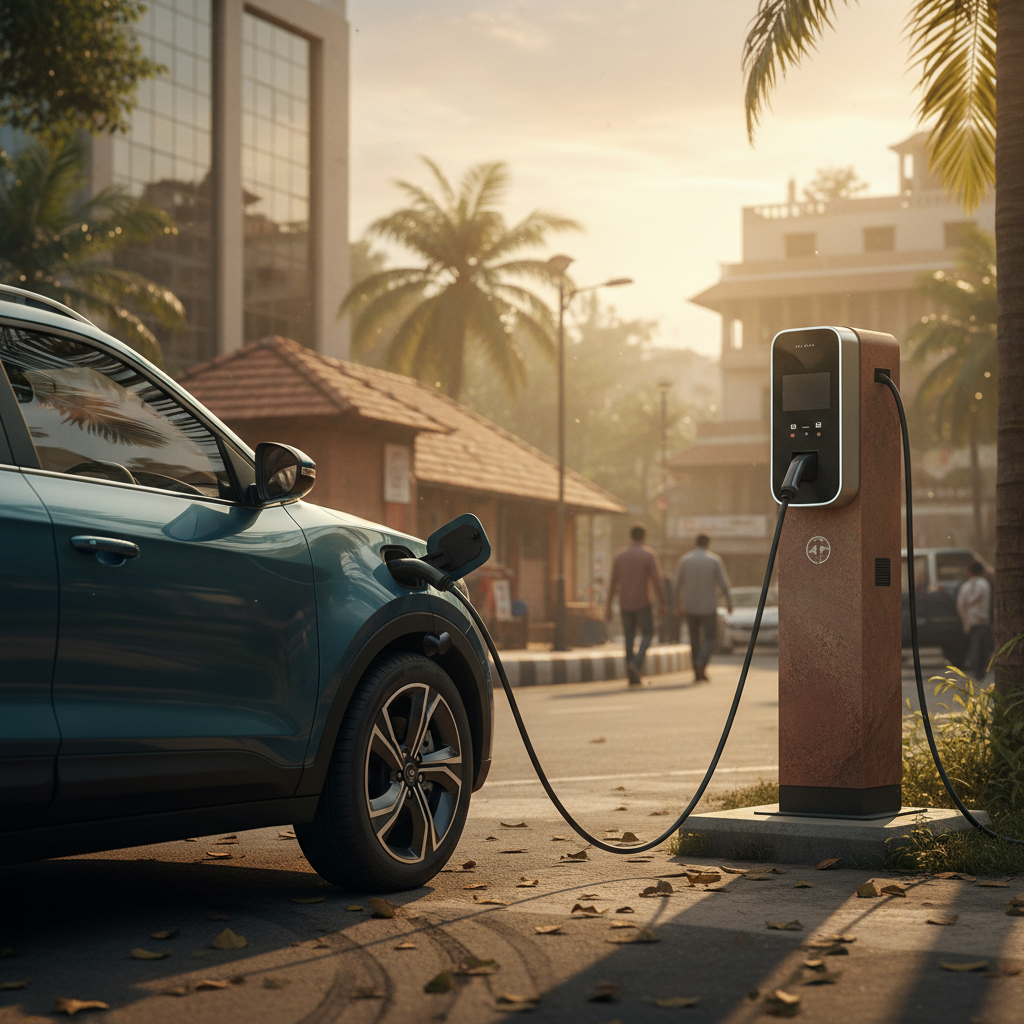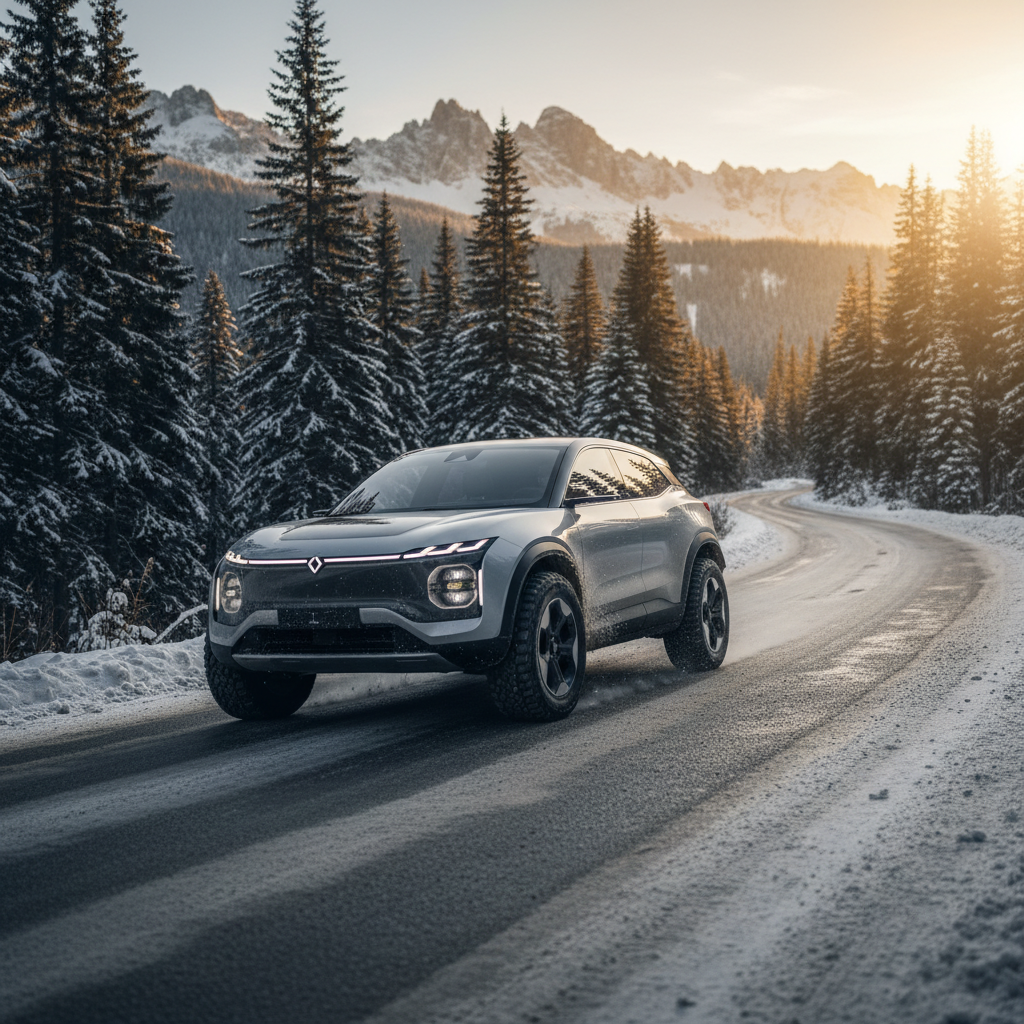If you’ve shopped for replacement rubber for your EV lately, you’ve probably stumbled on Sailun EV tires, specifically the ERANGE EV line. They promise low rolling resistance, quiet running, and long life, at a price that undercuts the usual suspects from Michelin, Continental, and Bridgestone by a very real margin. The question is simple: are you getting a savvy bargain, or just a cheap date with your 4,000‑lb battery pack?
Quick take
Why Sailun EV tires are suddenly on everyone’s radar
The EV tire reality check
EVs are hard on tires: they’re heavier, they hit harder off the line, and owners tend to notice range loss the minute rolling resistance goes up. That’s how a relatively unknown name like Sailun, a value-focused manufacturer out of China, ends up in the conversation. The ERANGE EV line is Sailun’s answer to purpose-built electric-vehicle rubber, promising efficiency and comfort without the premium-brand tax.
The budget-tire stigma
What exactly are Sailun ERANGE EV tires?
When people talk about Sailun EV tires, they’re almost always talking about the ERANGE EV (often listed as "ERANGE EV Eco.Sphere" or "Ecosphere"). This is Sailun’s all-season, road-focused line designed specifically for electric and hybrid passenger vehicles and crossovers, available in popular sizes from around 17 to 21 inches.
Sailun ERANGE EV in plain English
Marketing buzzwords translated into what you actually feel behind the wheel
EcoPoint³ compound
EV-ready construction
SilentTread design

Key features of Sailun EV tires that actually matter
- All-season, road-biased tread – Asymmetrical pattern tuned for everyday commuting and highway use rather than snow-country heroics.
- Low rolling resistance – Designed from the ground up to protect your kWh-per‑mile numbers, not just last a long time.
- High UTQG treadwear (around 600 AA) – On paper, this is in the same durability ballpark as many mainstream touring tires.
- EV-specific load ratings – XL (extra load) options and reinforced sidewalls to handle heavy battery packs and passengers.
- Noise reduction focus – SilentTread tech and variable pitch blocks to keep the cabin as calm as the powertrain.
Where you’ll most notice the difference
Range, noise, and comfort: How they feel in the real world
On paper, the ERANGE EV looks like every other earnest EV tire: eco compound, low rolling resistance, optimized for range. In practice, owner feedback paints a more interesting picture, especially around noise and efficiency.
Range & efficiency
Real‑world EV owners, Bolt, e‑Golf, Model 3/Y drivers, typically report similar or slightly better efficiency compared to OEM eco tires. One common thread: any range penalty versus the most extreme low‑rolling‑resistance OEM tires tends to be small enough that drivers notice the comfort upgrade more than the efficiency hit.
As always, your results depend heavily on driving style, tire pressure, and climate. If you treat the accelerator like an on/off switch, no tire on earth is going to save your kWh.
Noise & ride comfort
This is where Sailun’s EV line tends to earn its keep. Multiple owners describe ERANGE EV tires as noticeably quieter than the worn OEM sets they replaced. On a modern EV with an already silent drivetrain, shaving a few decibels of roar is the difference between a car that whispers and one that drones on the interstate.
Ride quality lands in the “touring” zone: firm enough for EV weight, not harsh. If you’re coming from a stiff performance tire, these will feel pleasantly relaxed.
For my EV the Sailun ERANGE EVs have been quieter and cheaper than OEM, with range about the same. For a daily driver, that’s a win.
The catch: rotation and alignment
Warranty, tread life, and what the fine print says
Warranty is where Sailun quietly plays in the big leagues. The ERANGE EV line is covered by Sailun’s Total Coverage Warranty, including materials/workmanship coverage, road-hazard protection on select patterns, and a substantial treadwear guarantee.
Sailun ERANGE EV warranty snapshot
What the paperwork promises if you treat the tires properly
| Item | Electric Vehicles | Gas/Hybrid Vehicles | Notes |
|---|---|---|---|
| Mileage warranty | Up to 80,000 km (≈50,000 mi) | Up to 130,000 km (≈80,000 mi) | Some U.S. fitments are marketed as 45–50k-mile warranties. |
| Time limit | 60 months | 60 months | 5 years from purchase date. |
| Road hazard coverage | Yes (on ERANGE EV) | Yes (on ERANGE EV) | Within the first portion of tread life; details vary. |
| Defects in materials/workmanship | 60 months | 60 months | Industry-standard coverage period. |
Exact coverage can vary by region and specific SKU, always confirm on your invoice.
What a treadwear warranty really means
Sailun EV tires vs premium brands: Where they win and lose
The obvious comparison is to premium EV‑focused tires like Michelin e·Primacy, Michelin Pilot Sport EV, Continental EcoContact/ProContact EV, and Bridgestone’s EV‑tuned offerings. Those are the Michelin-star restaurants of EV rubber. Sailun is the smart neighborhood bistro: not as fancy, but very good value if you know what you’re ordering.
Sailun ERANGE EV vs typical premium EV tires
Generalized comparison for mainstream EV crossovers and sedans in 17–20" sizes.
| Factor | Sailun ERANGE EV | Premium EV tires (Michelin/Continental/etc.) |
|---|---|---|
| Price per tire (street pricing) | Lower – often $100+ less per tire in popular sizes | Higher – frequently $200–$350 per tire |
| Rolling resistance | Optimized for EVs; generally competitive | Class-leading on the very best eco models |
| Dry grip & handling | Adequate to good for daily use | Stronger ultimate grip and steering precision |
| Wet performance | Good for the category; tuned for safety | Top-tier braking and hydroplane resistance |
| Noise | Generally quiet, especially vs. worn OEM tires | Very quiet; often benchmark level |
| Warranty | Competitive mileage and road-hazard coverage | Strong mileage warranties; road hazard varies |
| Brand cachet | Value-focused, low-name recognition | High recognition, higher resale appeal on performance models |
Individual models vary. Always compare actual specs and reviews for your tire size.
Who should seriously consider Sailun ERANGE EV
Which EVs are a good match for Sailun ERANGE EV tires?
Sailun ERANGE EV tires come in many of the usual suspects’ sizes: think 215/55R17, 225/50R17, 245/45R19, 265/35R21 and so on. In human terms, that covers a lot of compact and midsize EVs and crossovers.
Typical EV owners who benefit most from Sailun EV tires
Not an exhaustive fitment guide, more like a personality test for your daily driver
Daily commuters
High-mileage drivers
Family haulers
Cold-climate and snow caveat
How to choose the right Sailun EV tire size
Tire sizing is where EV owners sometimes get creative in the name of range, narrower tires, taller sidewalls, wild experiments. With a heavier vehicle and a lot of money in the battery pack, this is not the place to improvise too much. Start from your door‑jamb label and work outward.
Step-by-step: Picking the right ERANGE EV size
1. Check the door-jamb placard
Open the driver’s door and find the tire information label. That’s your baseline size, load index, and speed rating. Any Sailun EV tire you choose should meet or exceed those numbers.
2. Match load index and speed rating
Look at sizes like 215/55R17 98V on product pages. The <strong>98</strong> is load index; the <strong>V</strong> is speed rating. Sailun ERANGE EV options commonly carry XL load ratings and V speed ratings, good news for EVs.
3. Stay close to the OEM diameter
Going up or down more than ~3% in overall diameter can upset your speedometer and some driver‑assist systems. Most ERANGE EV fitments stick very close to common OEM dimensions.
4. Decide your priorities
If you’re tempted by a slightly narrower tire for range, talk to a tire professional first. Sometimes a different width or wheel size can work, but you don’t want to compromise load capacity or stability on a heavy EV.
5. Buy from an installer who understands EVs
Ask point‑blank if they’ve mounted many EV tires and whether they torque lugs properly for heavier vehicles. It’s worth driving past the cheapest shop for someone who knows what a battery pack weighs.
Buying checklist: If you’re considering Sailun EV tires
Before you click “add to cart” on a set of Sailun EV tires, sanity‑check your expectations. These are value‑oriented, EV‑specific tires that trade a small slice of ultimate performance for a big discount in price.
Your Sailun ERANGE EV pre‑purchase checklist
Confirm they’re the EV-specific ERANGE line
Sailun also makes non‑EV tires. Make sure the product name clearly says <strong>ERANGE EV</strong> or "ERANGE EV Eco.Sphere/Ecosphere" and notes EV or hybrid in the description.
Check independent reviews for your exact size
Tire behavior can change with size. Look for reviews from EV owners running the same or very similar size as your car, not just generic star ratings.
Compare total installed price, not just tire price
Factor in mounting, balancing, disposal fees, and road‑hazard coverage. Sometimes a “cheap” tire becomes less cheap once you add shop charges.
Decide how much performance you really use
If your EV spends its life in Eco mode and you rarely brake hard, ERANGE EV is probably plenty of tire. If you live for canyon runs in a dual‑motor performance model, a premium performance EV tire is money well spent.
Plan your rotation schedule in advance
Put reminders in your calendar every 5,000–7,000 miles. Regular rotations and correct pressures are the difference between a pleasant 40,000‑mile relationship and a noisy 20,000‑mile divorce.
FAQ: Sailun EV tires and ERANGE EV line
Frequently asked questions about Sailun EV tires
Where tires fit into the bigger EV picture

Tires are the least glamorous part of EV ownership and, perversely, one of the most important. A set of Sailun ERANGE EV tires won’t turn your car into a track weapon, but they can give you a quieter ride, predictable handling, and respectable range at a price that doesn’t sting every time you glance at your odometer. For many EV owners, that’s exactly the brief.
If you’re shopping for a used EV, or about to put fresh tires on the one you already love, having the right rubber is only half the story. At Recharged, every vehicle comes with a Recharged Score battery health report, fair market pricing, and EV‑savvy support that can talk you through everything from tire choices to home charging. Pair a healthy battery with the right set of EV tires, and you’ve just given yourself the quietest kind of confidence: the kind that shows up every time you pull onto the highway.



